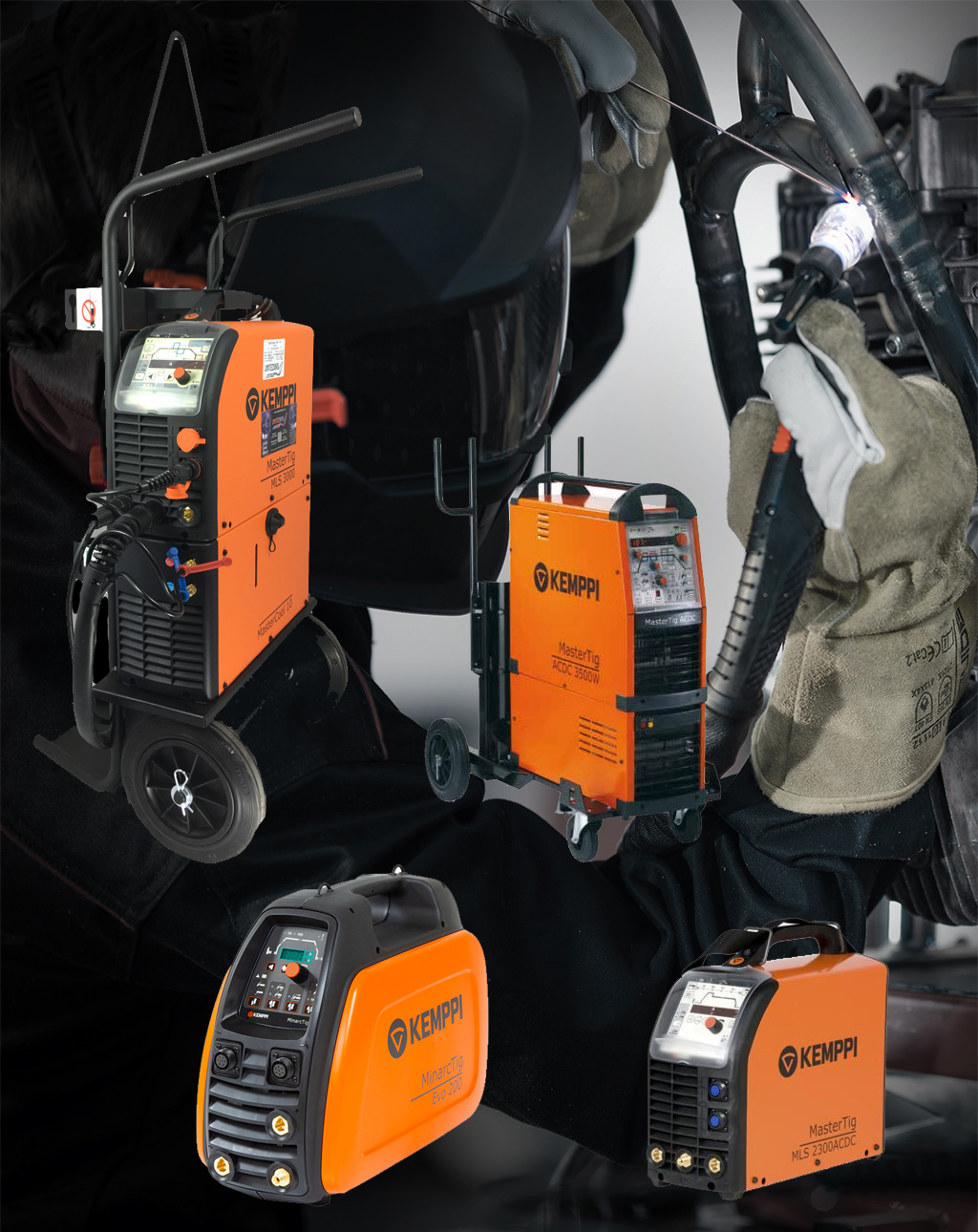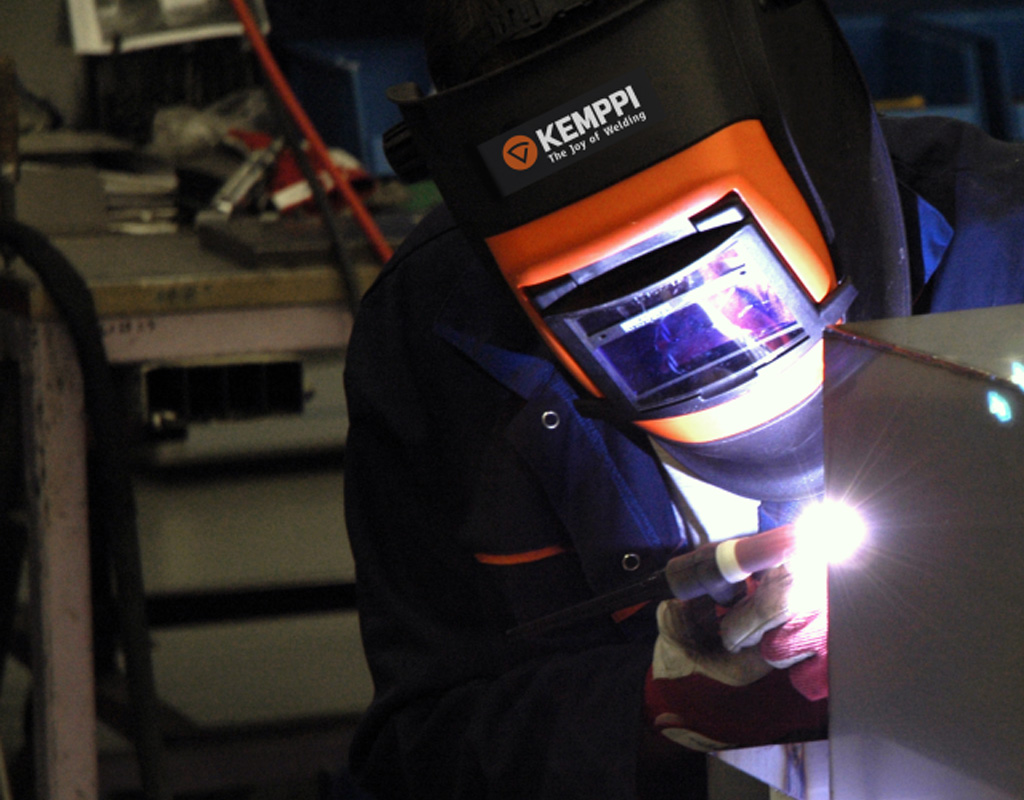Rental of TIG welding machines
Within the port of Antwerp, Antwerp Welding Supply nv has been active for years in the rental of TIG welding machines. Our customers can always count on our many years of experience and smooth service to assist them with their needs for TIG welding equipment and associated accessories.
Our range of TIG welding machines consists of a varied list of Kemppi welding machines with different technical specifications; from 220V to 380V, from 200A to 500A, gas-cooled or water-cooled, DC or AC/DC,...
TIG welding is mainly known for the "better" welding because there are no weld spatters. This welding technique is often used for welding where quality and airtightness of the connection is crucial. It is therefore widely used in, for example, the automotive industry for repair work or in the petrochemical industry for pipelines where fuels or liquids are transported.
Rental offer
Rental range of TIG welding machines
Kemppi gascooled TIG welding machines
| Model / type | Daily price | Weekly price | Monthly price |
| DC TIG 220v - 200A | from 37,00 € |
from 92,50 € |
from 277,50 € |
| DC TIG 380v - 300A | |||
| DC TIG 380v - 400A | |||
| AC/DC TIG 220v - 230A |
Kemppi watercooled TIG welding machines
| Model / type | Daily price | Weekly price | Monthly price |
| DC TIG 380v - 400A | from 61,00 € |
from 152,50 € |
from 457,50 € |
| DC TIG 380v - 500A | |||
| AC/DC TIG 380v - 350A |

Questions?
Frequently asked questions
What's included?
Al our TIG welding machines come with:
- Ground clamp 5 meters
- TIG torch 8 meters
- Pressure gauge for the gas cylinder
- Remote control 20 meters
Machines are supplied without gas.
Neem een kijkje naar onze extra toebehoren.

How does it work?
TIG, or Tungsten Inert Gas, stands for the material used for the electrode (Tungsten) and on the other hand the used noble gas (inert gas). An electric arc is created by passing the electrode over the workpiece with one hand, creating a weld pool. With the other hand, you add the additive material to the weld pool thanks to a welding rod. Due to the heat, the filler material melts and thus forms the weld joint with the material to be welded.
The best result is obtained by moving the torch and filler material evenly over the weld joint with a steady hand. With the necessary experience and practice you can make beautiful and accurate welded connections.

When to use it?
TIG welding is the best option when the end result of the welding must form a firm but above all a beautiful weld connection. It is mainly used for work where welding spatter can be avoided, such as car restoration work, furniture welding,... It is also the recommended way of welding for equipment in the food industry, for pipes for fuels or pipes used in the petrochemical sector.
The most important reason to opt for TIG welding is the guaranteed airtightness of a TIG weld.

What do you need?
You need the following minimum items for TIG welding:
- A welding machine with support for TIG welding (DC or AC/DC)
- A ground terminal
- A TIG torch
- A tungsten electrode
- Noble gas, often Argon or Helium

What materials can you weld?
TIG welding techniques are suitable for all kinds of ferrous and non-ferrous metals. In other words, it is a perfect choice for welding steel, stainless steel, aluminum, bronze and copper. An advantage of TIG welding is that you can work with very fine materials. The welding speed is relatively slow and labour-intensive, but prevents the material to be welded from burning.
There are 2 types of TIG welding machines; AC/DC or DC welding machines. DC welding machines that work with direct current are mainly used for welding steel or stainless steel. AC/DC welding machines with alternating current support are indispensable when welding aluminum workpieces.

What are the advantages?
The main advantages:
- Beautiful and accurate welds
- No splashes or sparks
- Support for ferrous and non-ferrous materials
- TIG welding machines often also support electrode/MMA welding

What are the disadvantages?
The main disadvantages:
- Slower and more complex welding technique
- Experience is a must for a good end result

